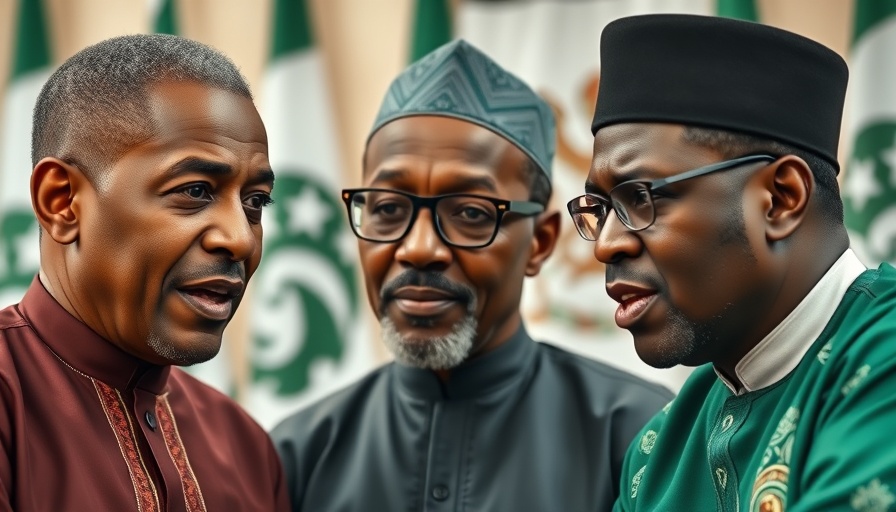
The Evolving Landscape of Nigerian Politics Ahead of 2027
As Nigeria gears up for the pivotal 2027 elections, political alignments are shifting alarmingly. Former Kaduna state governor Nasir El-Rufai's potential coalition with Peter Obi, along with Atiku Abubakar, reflects the urgent need for opposition parties to unify against the ruling All Progressives Congress (APC). El-Rufai's expressed intent to adopt the African Democratic Congress as a primary coalition platform highlights a critical response to the current challenges faced by the opposition.
In 'Ahead of 2027 Elections: Atiku, Obi, El-Rufai in Talks to Form Coalition,' we delve into the complex political landscape that is evolving rapidly as key leaders prepare for a crucial electoral battle.
Internal Struggles within the People's Democratic Party
The recent developments within the People's Democratic Party (PDP) raise significant concerns about its viability in the forthcoming elections. With internal disputes, including leadership challenges over the national secretary position, the PDP struggles to maintain cohesion among its ranks. This discord has prompted some political figures, such as Aquaam state governor Omar Ano, to suggest switching allegiance to the APC, citing loyalty and stability as vital components for election success.
Regional Dynamics and National Strategy
The narrative leading to the 2027 elections is not merely about party affiliations; it also encompasses broader regional dynamics. Discussions surrounding the north's political influence underscore the notion that the region remains a critical player in determining Nigeria's leadership. The Northern Consensus Movement emphasizes the need for unity and cooperation among northern stakeholders to advance their agenda during these elections.
A Challenge for New Political Coalitions: Will They Break the APC's Hold?
Despite the fervor for coalition talks, skepticism looms over their effectiveness in dethroning the ruling party. Experts highlight that unity among opposition parties has historically been a challenging endeavor in Nigeria's complex political landscape. This concern was echoed by Dr. Abdullah Ali, who stressed the necessity for robust political strategies and connections to shift power dynamics significantly before the elections.
Political Insights: Addressing Misbeliefs and Misalignments
There are prevailing misconceptions about the opposition's capacity to unseat the APC, particularly given its current dominance and control over political structures. Voters and political analysts must be wary of exaggerated claims regarding the coalition's strength. A deeper understanding of the political framework and the roles each party plays is necessary to navigate the electoral terrain effectively.
Calls for Informed Electoral Decisions
As these coalition talks unfold, it is essential for voters to stay informed and effectively challenge their political representatives. Whether one supports the APC, PDP, or undecided parties like the SDP, constituents must engage in dialogue concerning their expectations and aspirations for governance. Political awareness will be critical in shaping an electorate that demands accountability and reinforces democratic engagement.
In conclusion, Nigeria stands at a crossroads some four years ahead of an increasingly pressing electoral showdown. The unfolding dialogues around coalitions and re-alignments present an opportunity for voters to challenge the status quo. Staying aware of the developments within the political apparatus will empower citizens to advocate for representatives who truly reflect their values and needs.
 Add Row
Add Row  Add
Add 


 Add Row
Add Row  Add
Add 

Write A Comment